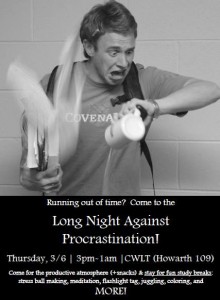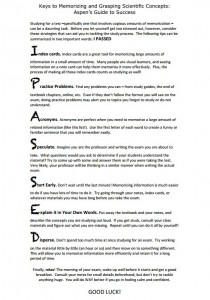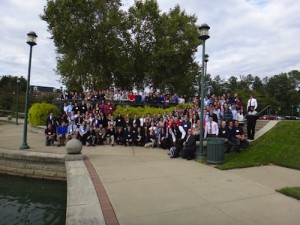We know that everyone has their own writing process, and it can sometimes be difficult to start a paper if you don’t go through your usual routine. Last semester, writing advisors shared about how they write. Here’s what they had to say!
Grete, Biology major: “When I really get into writing mode, my hair goes up in a ponytail, sweatpants come on, and all of the miscellaneous collections of books, old assignments, and the ever-present army of vitamin waters on my desk gets pushed to the side to make room for my computer. Head tilting from side to side along with rhythmic tapping of my feet is a common occurrence as I flip through all my notes and construct a detailed outline of what I hope to write. By the end of many hours of pouring over old books and constructing several drafts, I sit back, eat some brie and crackers, and finish revising my essay with a much needed feeling of contentment.”
Anna, English/History double major: “I’m what I call a Pressure Cooker Writer. Once I sit down to write, I don’t take more than a ten minutes break until I’ve got the draft I’m looking for. Of course, this strategy doesn’t work unless I’ve put some considerable thought into what I’m going to write, and how I’m going to write it, before I touch fingers to the keyboard. First, I have to closely read and consider the text(s) I’m working with. Lately, I’ve been rereading with my computer nearby, typing out quotes that I see as potentially relevant as I go along. After I’ve pulled out a lot of the best material from the text itself, I’ve found that I not only have a much better understanding of the reading, but also a potential direction I can take in my argument. A thesis usually comes quickly after going through the material I’ve typed out. Once I have a clear general argument, I start looking at the sub-arguments that are the steps to proving that thesis. With general idea headings, I’ll move around the quotes I’ve selected so that they’re organized under what will become my body paragraphs. Now, before I’ve even started to write, I have a thesis, headings for body paragraphs organized by sub-arguments, and a wealth of textual evidence for each step of the way. It’s all this prep work that allows the pressure cooker strategy to work so well. Once you’ve done all the cutting and basting and seasoning, you can toss it all in and go!”
Maya, History major: “My writing process begins when I check out a teetering stack of books from the library. This may be a quirk unique to history majors, but I find it to be the most reassuring part of the writing process since it means that other people have thought and wrote about my topic as well. To organize my thoughts around the writing assignment, I comb through glossaries and subject encyclopedias for key words and ideas, and then I draw a bubble map connecting those ideas. Once I know what ideas I’m focusing on, I write a skeleton outline with an introduction, one idea per body paragraph, and a conclusion summarizing my analysis and re-stating the significance of my claim. That skeleton makes it easy for me to categorize my quotes and synthesize clear, specific analysis. My outlines are always single-spaced and full of different symbols and colors marking sections that I want to revise or expand upon. Once I’m confident that my ideas are clear, have sufficient evidence, and answer the assignment prompt, I paste the writing into a new document, erase all the bullet points, standardize the formatting, and read it out loud to myself to check the assignment’s flow and syntax.”
Jana, History major: “My writing method is hectic at its best, frantic at its worst. I write and work in spurts, meaning that instead of sensibly researching for two or three hours a day on a single project I’ll try to jam 15-ish hours’ worth of work into a single weekend. When it comes to the actual writing, I gotta keep myself pumped: I listen to Girl Talk remixes or (as recommended by fellow advisor Hannah Fattor) Australian eco-rap, and denizens of the front rooms of Collins Library are probably familiar with my mid-paragraph dance moves and lip-synching. I tend to write my essays in a single sitting, even if it’s a 20-page long behemoth of a thesis. Sometimes I’m writing with a thorough point-by-point outline in front of me, but more often than not I just have a loose outline of reminders and general ideas or even no outline at all. My goal isn’t to write a perfect draft or even a good draft, but to just write something. Once I’ve gotten words on paper, I can rip them to shreds during my own overly-critical editing process. That’s where I’m merciless. I turn my conclusion into my introduction. I cut entire sections out of a paper. I change my entire argument. The paper usually ends up covered in scarlet/lilac/brown/whatever editing remarks in my famously illegible handwriting. It’s only after the 3rd or 4th round of this editing that I feel like maybe, just maybe, I’ve actually written something I’m proud of.”
Henry, P&G major (who graduated December 2013!): “My writing process is often characterized by the extent to which I’m putting things together on the fly. A lot of the time when I first sit down I only have a vauge inkling about what I want to say, usually something like ‘I think John Dewey has a god among men, I really want to defend him from this criticism,’ or ‘I don’t think Allan Bloom has any idea what he’s talking about, let me take his argument apart.’ As a political theory major, I’m usually writing an argument about other peoples’ arguments, so I always start with what they say. Can I write up a summary of John Dewey in a reasonable amount of space, or do I need to re-read? Next, I ask myself what I think about each part of their argument. What are their strengths and weaknesses, and what do I have to say about those? I tend to write individual sentences or paragraphs and organize them into something coherent. I end up cutting lots of stuff out by the end, but that’s the process that works the best for me!”
 fear! On Thursday, March 6 from 3pm to 1am, the CWLT is hosting the annual Long Night of Procrastination! Come to the CWLT’s event for the productive atmosphere, German pastries from Hess Bakery, and the fun study breaks. At the end of each hour, one of the peer tutors or writing advisors will lead a short activity such as learning to juggle, coloring, meditation, flashlight tag, and more.
fear! On Thursday, March 6 from 3pm to 1am, the CWLT is hosting the annual Long Night of Procrastination! Come to the CWLT’s event for the productive atmosphere, German pastries from Hess Bakery, and the fun study breaks. At the end of each hour, one of the peer tutors or writing advisors will lead a short activity such as learning to juggle, coloring, meditation, flashlight tag, and more.
![image[1]](http://blogs.pugetsound.edu/cwlt/files/2014/02/image1-300x300.jpg)


 subject to many students, but it can really be a LOT of FUN too!
subject to many students, but it can really be a LOT of FUN too!